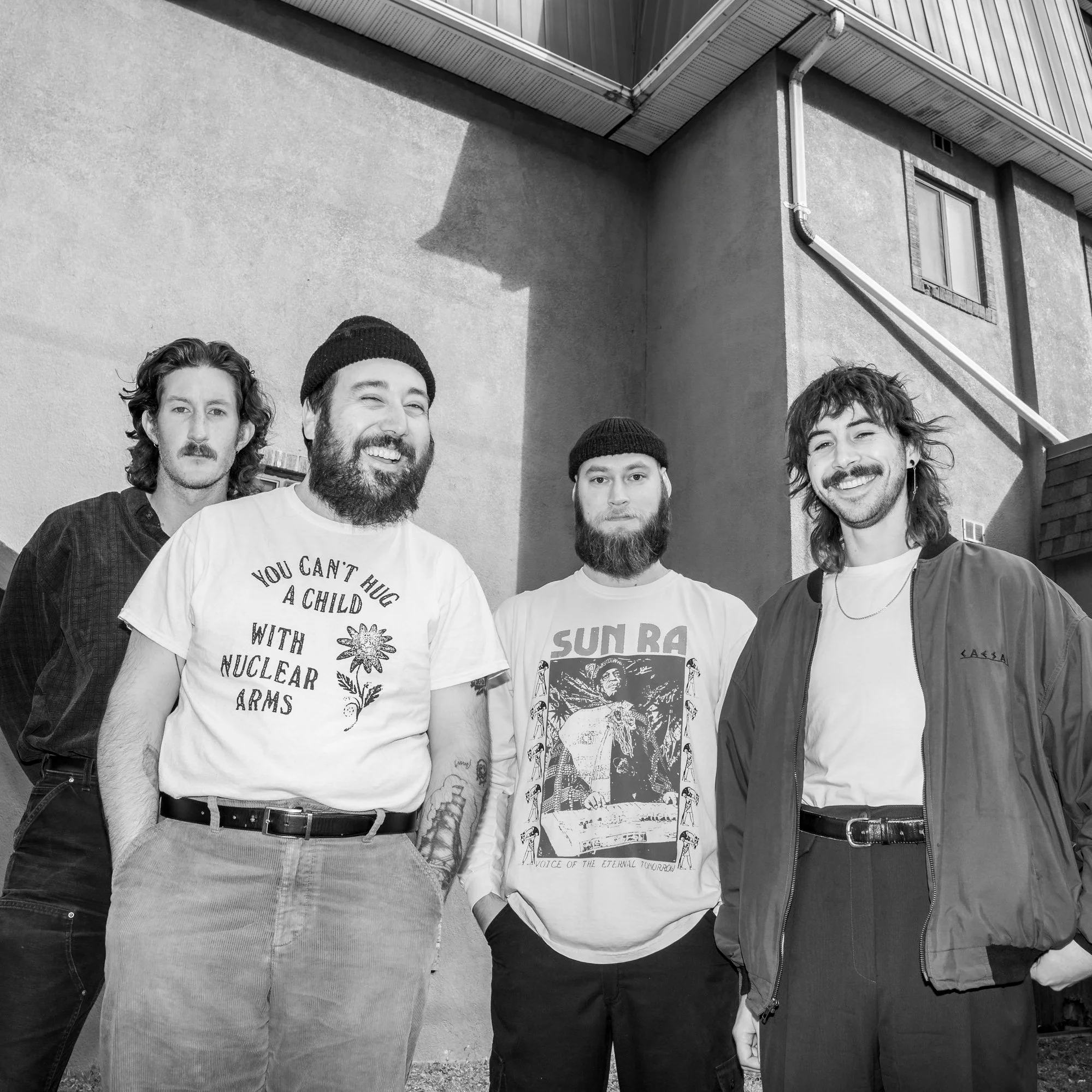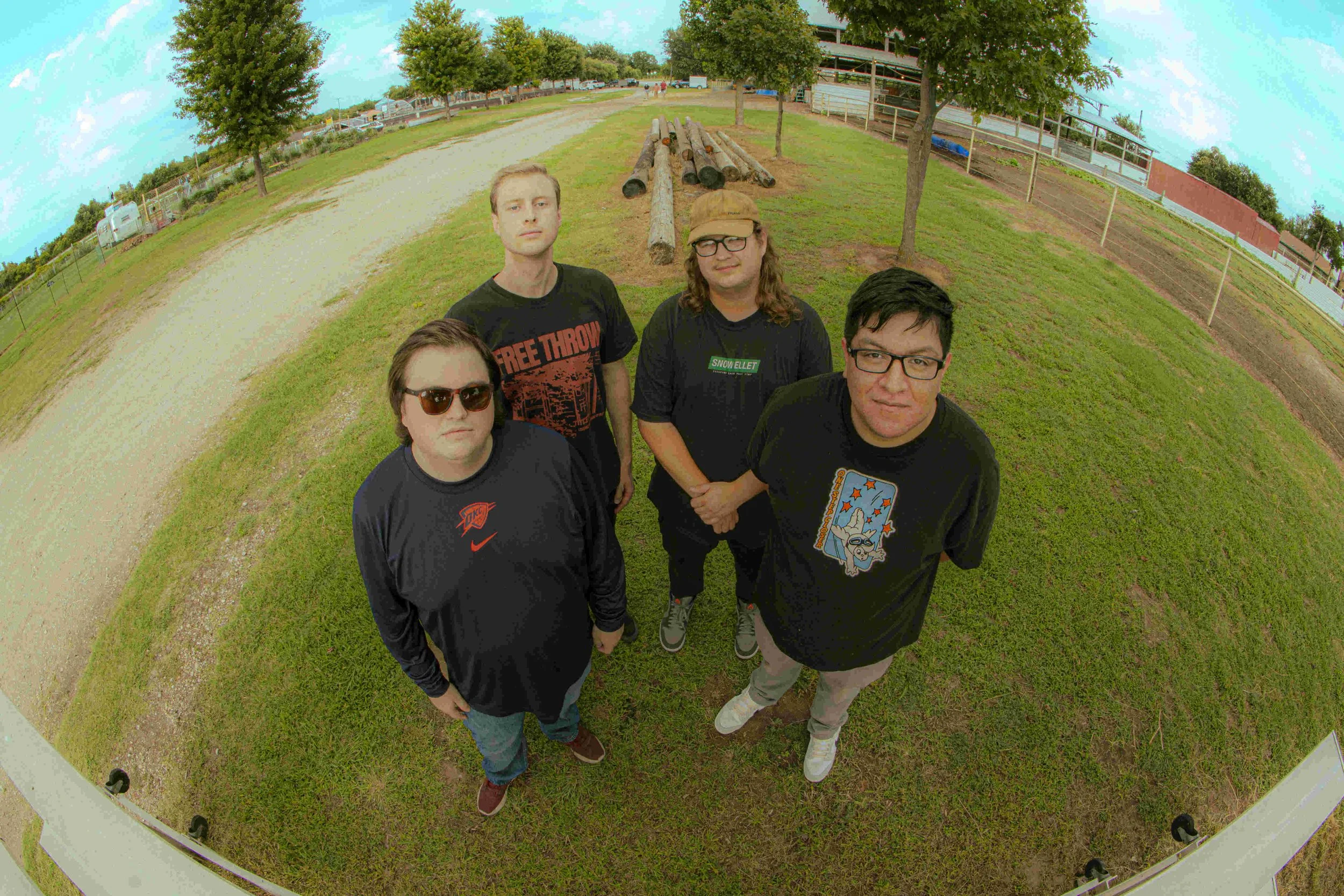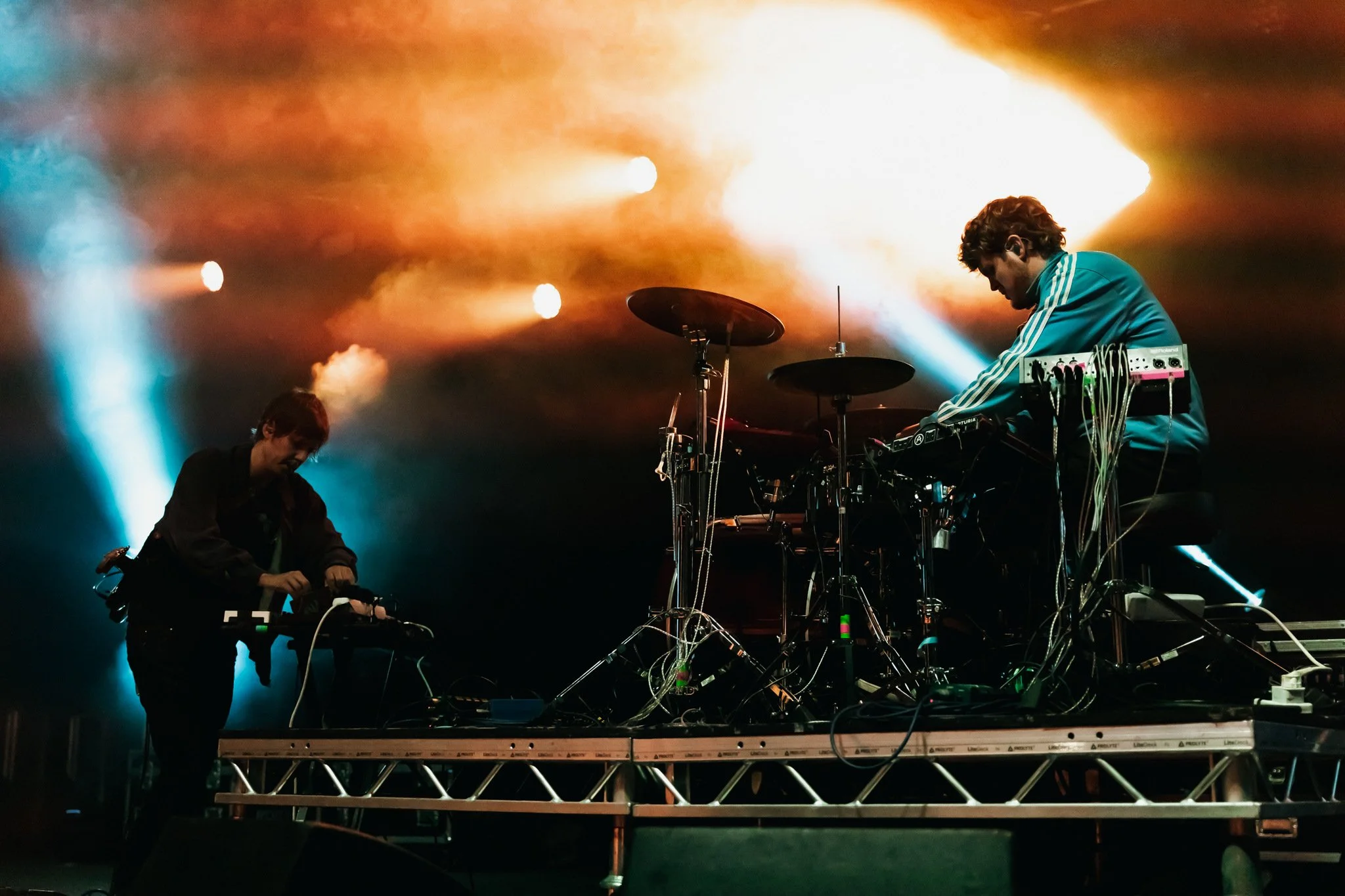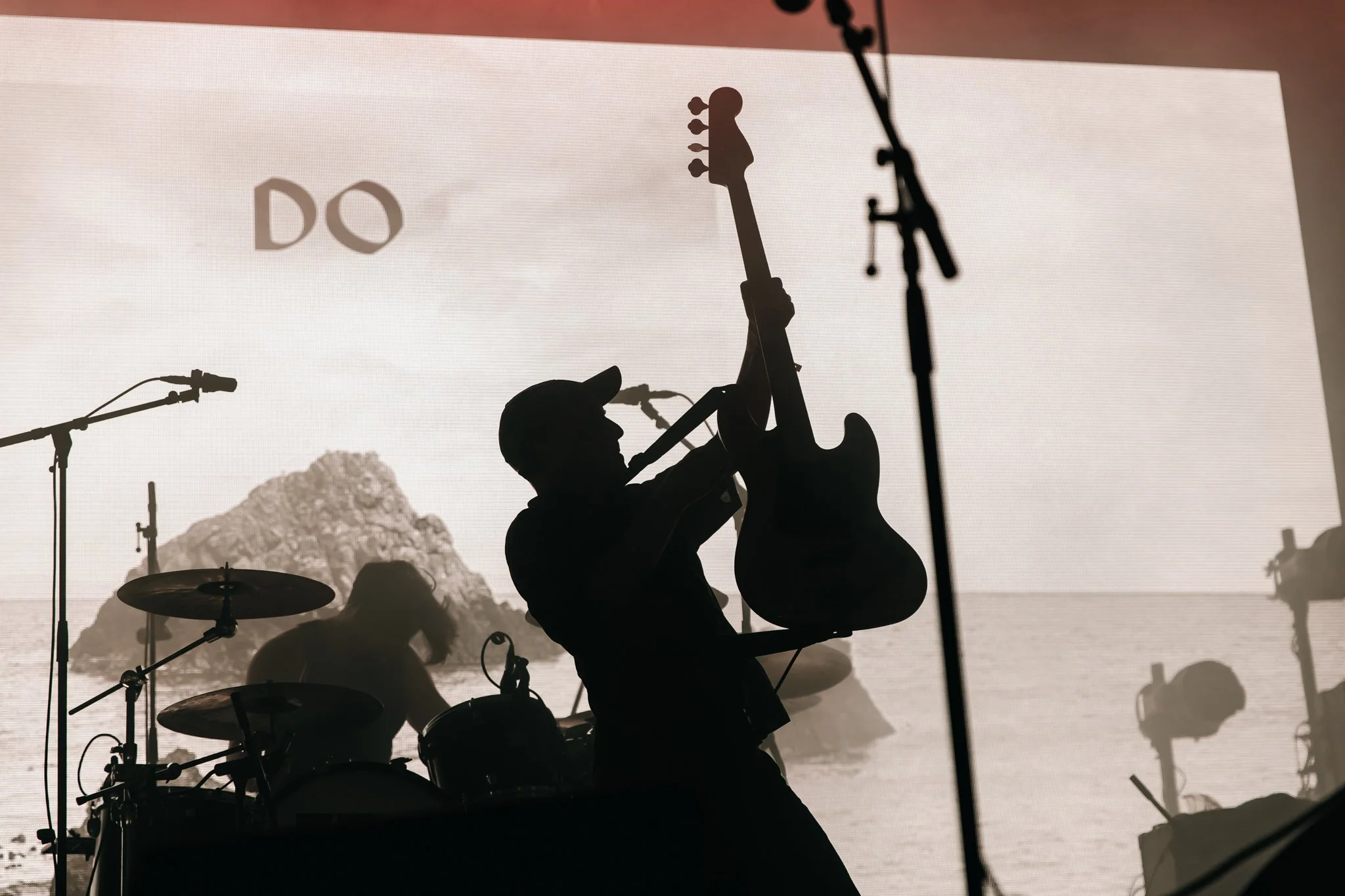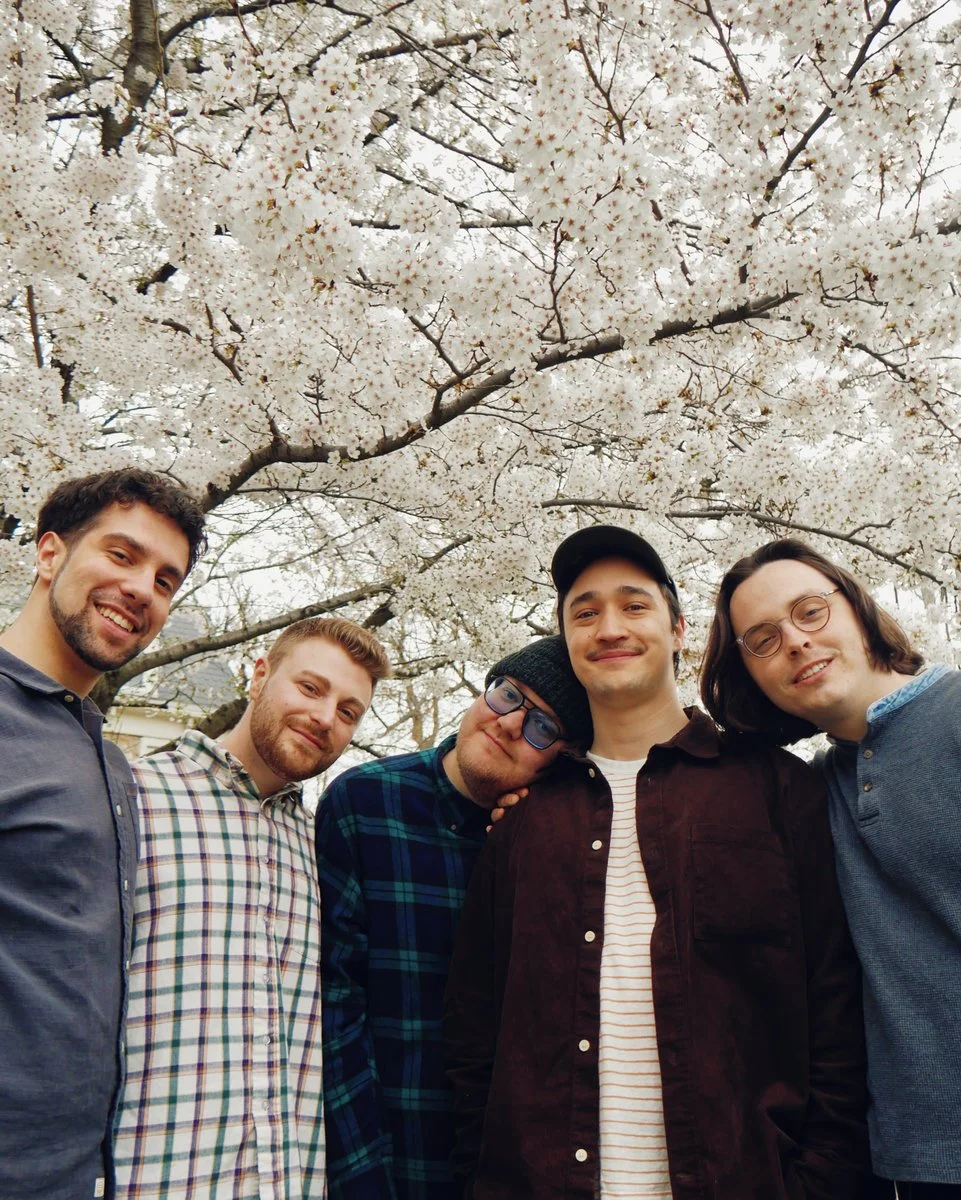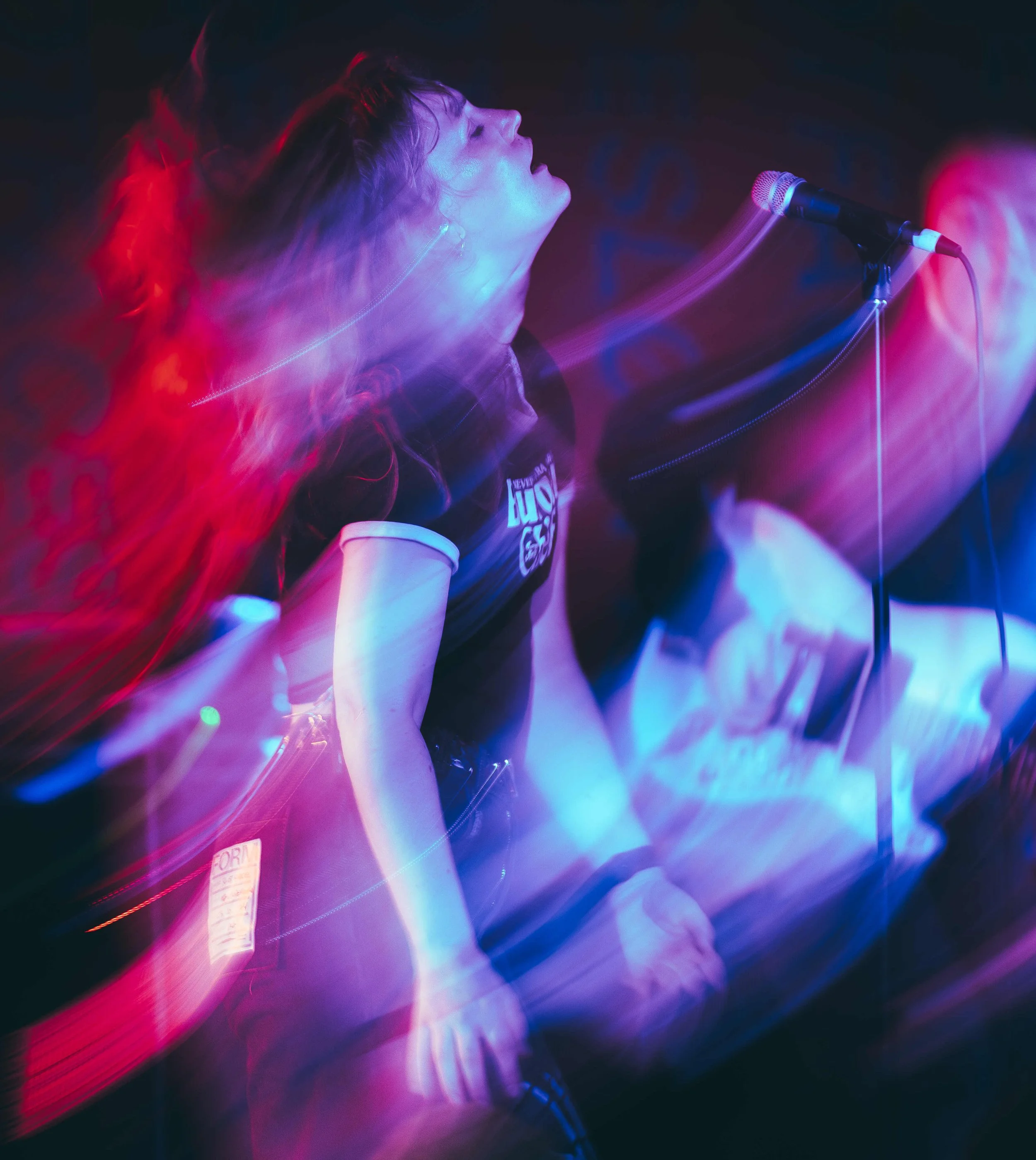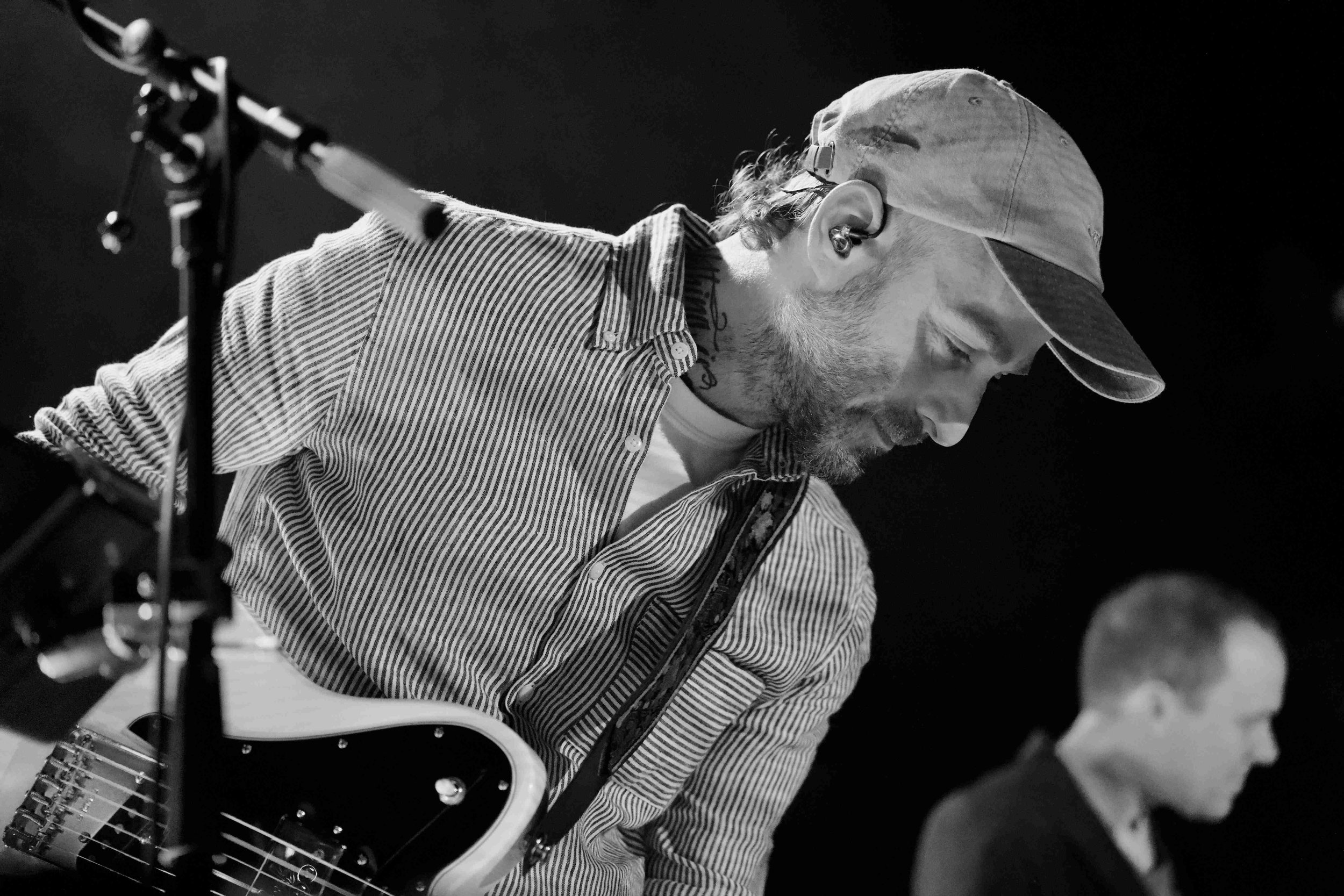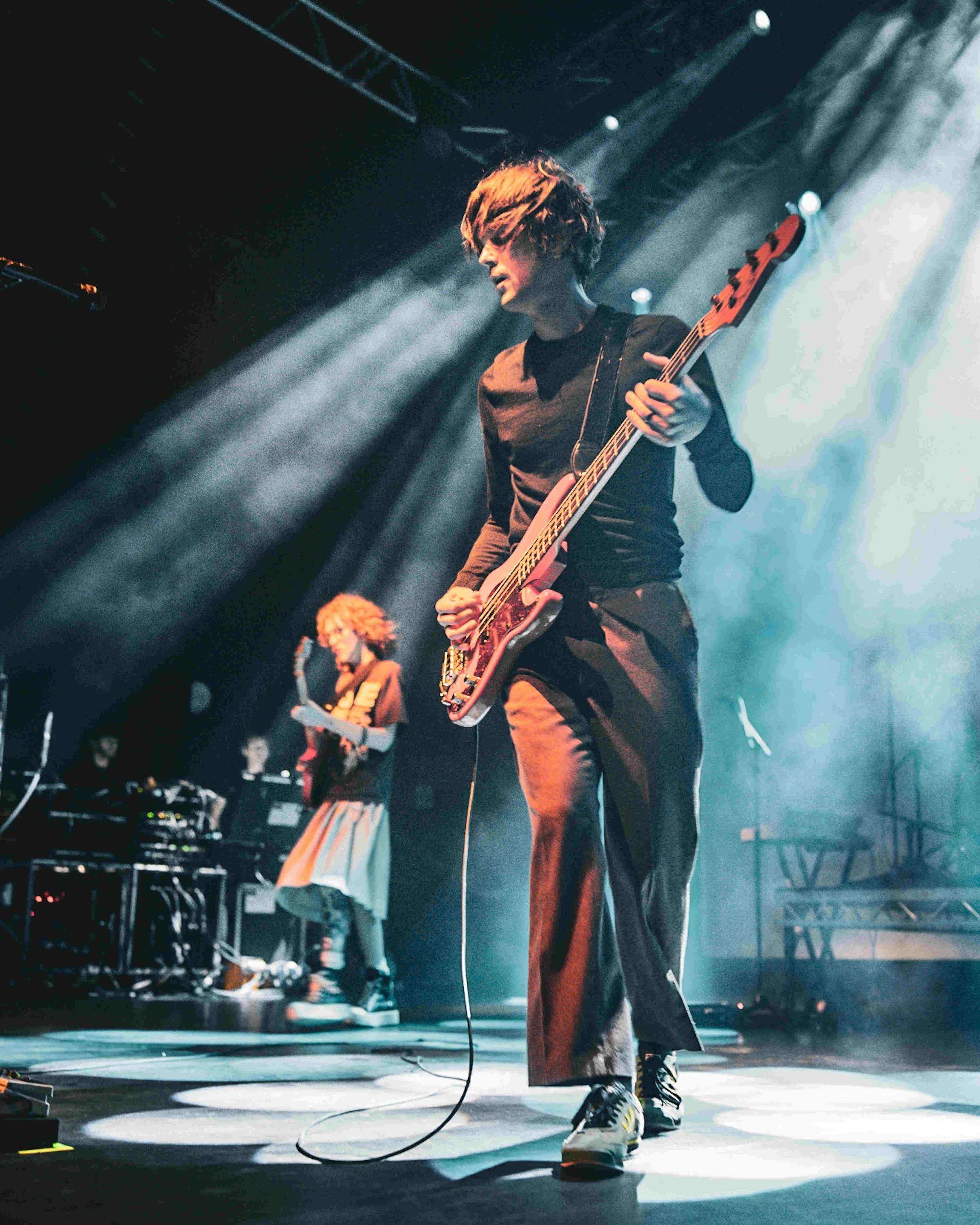Interview: Sham Family
Sham Family by Mike Neal
As anticipation reaches a fever pitch, Toronto's post-punk trailblazers Sham Family gear up to release their highly awaited debut album, A Deaf Portrait of Peace, this Friday, 19 July, via Wavy Haze. Emerging from the city's vibrant music scene, the dynamic quartet is already making waves with their visceral energy and relentless sonic exploration.
In our exclusive interview, Sham Family delves into the inspirations and themes behind A Deaf Portrait of Peace. They reveal the story behind the album's title, which is rooted in the disillusionment with political and corporate narratives. The band also shares insights into their creative process, detailing how years of performing and refining their tracks culminated in this powerful debut.
The album, produced by Graham Walsh of METZ and Alvvays fame, promises to capture the raw intensity of their live shows while pushing the boundaries of post-punk and post-rock. With standout tracks like "Community Service" and the rebellious new single "React," Sham Family confronts societal issues head-on, urging listeners to question the status quo and embrace a spirit of defiance.
Join us as we explore the world of Sham Family, a band poised to leave an indelible mark on the post-punk landscape. Read on for an in-depth conversation with the band, and get ready for the release of A Deaf Portrait of Peace.
What inspired the title of your debut album A Deaf Portrait of Peace and how does it reflect the themes explored in the album?
The album title comes from a track with the same name that occurs about halfway through the LP. It is a short hardcore-esque track that is meant to be viewed from the perspective of a con man populist politician, who will say whatever it is he needs to say to convince people that he cares. It is meant to be tongue-in-cheek, and we know that he is selling a lie. His portrait of peace and prosperity that he is painting is empty and valueless. A lot of the album deals with how frustrating and disconnected from reality politics and corporate PR are, and the title track aims to be the embodiment of that idea.
Can you walk us through the writing and recording process for the album? How long did it take to come together?
A lot of the songs that made it onto the album, minus a few that were written last minute, have been in our live set since the beginning. We wrote most of them a long time ago and have been tightening them up through performing and rehearsing over a couple of years. Taking them into the studio pretty well fleshed out gave us time and space to really play around with tones and textures and expand on them in a way we always wanted. We spent one week in the studio recording and a few months afterwards to finish some production ideas we wanted to include.
The album seems to tackle significant social and political issues. Can you elaborate on some of the key themes and messages you wanted to convey?
We are living in a time of great discontent and confusion, and we, like so many others, are just tired of trying to carry on pretending like this is working, and that there are no better options out there. A lot of the songs deal with themes of distrust and frustration with our government and the media that surrounds it. The trend towards right wing populism that has been brewing is infuriating. Politicians and media figures will say anything to keep in power and keep the everyday person fighting amongst themselves. The culture war pays well. You are being sold a fake bill filled with hate and we are tired of being complicit. Human rights are being stripped away because of conservative fear and acts of war and genocide are being swept under the rug by everyone at the highest levels of governance. We simply want people to be mad about these things and to speak up about it. Allowing ourselves to fall deeper into this right wing nightmare will help no one but those at the top. Stop hating your fellow man and stop watching fox news.
"Community Service" delves into the complex relationship between city pride and urban neglect. Can you share more about the personal experiences or observations that influenced this song?
Living in Toronto you often see people preaching how this city is better than so many others, but we fall into a lot of the same issues that many cities in North America face right now. There is a serious housing crisis and a real issue with underfunding mental health care. We are seeing more and more people living on the streets, and we are seeing more and more violent policing as the answer to that. We keep electing officials who claim to have our best interest at heart, but constantly fail to make any actual changes. But Doug Ford plans on building a really cool and really expensive luxury spa in a beautiful public park though so that's cool right? Personal greed of those in control often overpowers the real needs of the people.
How was the experience working with Graham Walsh on this album? What unique elements did he bring to your music?
Graham was a dream to work with. He was such a calming and encouraging presence in the studio. He went along with whatever crazy ideas we had and managed to turn them into something usable. He has worked with so many other artists who we look up to, he was able to get us to where we want to be so easily. He is a very talented engineer and producer, we were lucky to work with him.
Who are some of your primary musical influences, and how have they shaped your sound on this album?
This question ties in nicely to why we worked with Graham Walsh. He has worked with bands like METZ and Preoccupations, who happen to be big influences on us in terms of the energy in their songs and the general sonic landscape they exist in. We try to draw from a lot of different genres though. There is a lot of influence from shoegaze, hardcore, hip hop, and noise rock. We have tried to blend all that we love into something cohesive that feels unique to us.
Your sound has been described as a blend of post-punk and post-rock. How do you feel your music has evolved since your debut EP?
I think our sound has become bigger, fuller, and more boisterous in general. We wanted to add a level of chaos into the sound and the mix that we felt was lacking in earlier recordings. Over the years of playing together, our sound has gotten much looser and noisier than where we initially started. The record is a bit of a mixed bag of influences, but it feels more like a cohesive, complete package than our E.P in a sense. It sounds like us.
Your live shows are known for their intense energy. How do you capture that live energy in your recordings?
We tried to record as much as possible live off the floor, playing together in one room. There were not a lot of overdubs for most of the tracks. We wanted to just simply get in the studio, find cool sounds and play.
Do you see your music as a form of activism? If so, what changes are you hoping to inspire in your listeners?
Music to me feels like a good first step within activism. It’s a conversation starter. We want to bring up ideas and plant it in their minds. We want to show people that it’s good to talk about this stuff and it is important to think about and discuss. The goal is to try and spark something that encourages people to act. The real activism is what people do out in the real world, the people organising, protesting, and fighting. Music is just one aspect of activism, there is so much more to it though.
You've mentioned a love for musical exploration. Are there any new genres or styles you're eager to experiment with in the future?
It is hard to nail down a direction sometimes when there is simply so much good music that excites you. We have been really inspired by this current wave of shoegaze that's going on today. We also really want to lean into heavier genres, add some more hardcore, post-hardcore, doom metal elements, and the freedom that comes with them into the mix. We would also love to try and collaborate with some rappers in the future, Hip Hop and punk just feel right together.
A Deaf Portrait of Peace by Sham Family is out 19 July via Wavy Haze.

